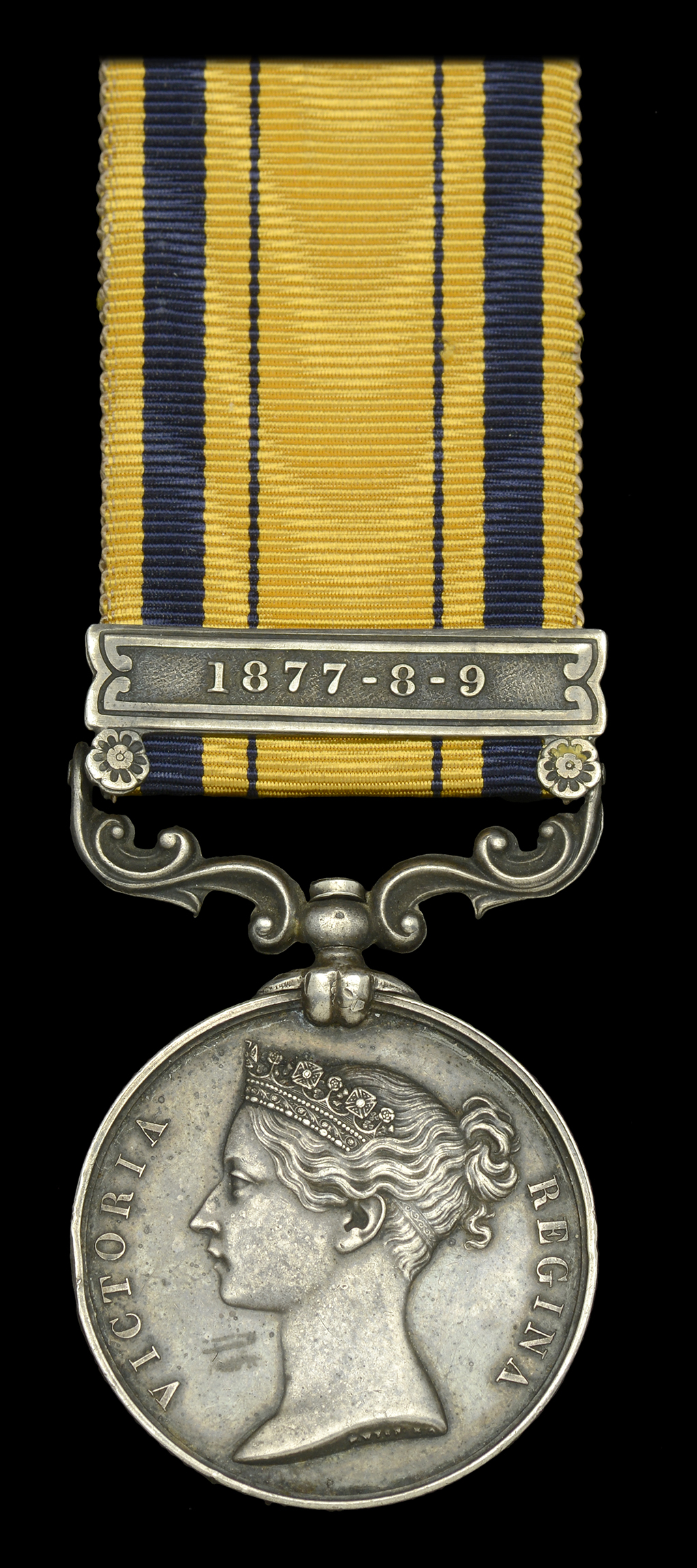South Africa 1877-79, 1 clasp, 1877-8-9 (938. Pte. W. H. Smith. 2-24th. Foot.) edge bruising, very fine £600-£800 --- William Henry Smith attested for the 25th Brigade at Tredegar, Brecon, in 1876, and was posted to the 2nd Battalion, 24th Regiment of Foot on 15 December 1876. He served with the 2nd Battalion in South Africa during the Zulu War, and witnessed the aftermath of the massacre at Isandalwana. The Cardiff Times of 29 March 1879 takes up the story: ‘The following letter has been received from Mr. Ephrame of Tirphil: “My friend, I now take the pleasure in writing these few lines to you, hoping you are quite well, as it leaves me present. I am sorry to have to relate you as of what happened here, but I expect you have seen it in the papers at home, but the eyesight can relate more than the reading. On the 18th of January we crossed into the enemy's country and pitched camp on the 22nd January. General Thesinger took half our column out to meet the enemy, but instead of us meeting them, the half-column that was left in camp had to meet the fatal charge. About 25 000 of the enemy took up another position of which we knew nothing about and only 1,000 of our men was in camp, so that we were on the losing side. They came in such force that they cut every man off the face of the camp, and there was not one left to tell of that fatal day, and the enemy was not satisfied with killing our men, but they even cut them to pieces and took every thing that we were possessed of, so that when our half-column came back, about three miles from the camp, we could see nothing but a van and only a few waggons. They had taken about 1,000 rifles and two large guns. These they took to a high precipice and smashed them all to pieces. And they took all the ammunition, rations and everything they could lay their hands on, so we had to take the camp with the end of the bayonet, when, after charging to the top of a hill, they retreated and we were not able to go any further, and we saw all our poor men lying dead on the most terrible field and they fought to the last, killing about 6,000 of the enemy, so that the place was strewn with the dead. The next day we retreated to the nearest commissary [Rorke’s Drift] to get something to eat, but they had attacked that, but with God's providence, some men that was left there kept it, having 13 killed, or else I am afraid I should not have been able to write to you any more. Give my regards to all old friends. Yours &c., W Thomas, No. 939, 2-24th Regt.” A similar letter has also been received by Mr. Henry Smith of New Tredegar, from W. H. Smith, No. 938, 2-24th Regt.’ Departing South Africa in early 1880, Smith arrived with the Battalion in Gibraltar on 12 February 1880, and went into quarters in the Casemate barracks. On 20 July 1880, amid the war in Afghanistan, the battalion was ordered to be held in readiness for embarkation to India, where they arrived in August 1880. They were in Fort St George, Madras, when William Henry Smith died of 'Hepititus and brain disease' on 4 July 1885. Sold with copied research.





